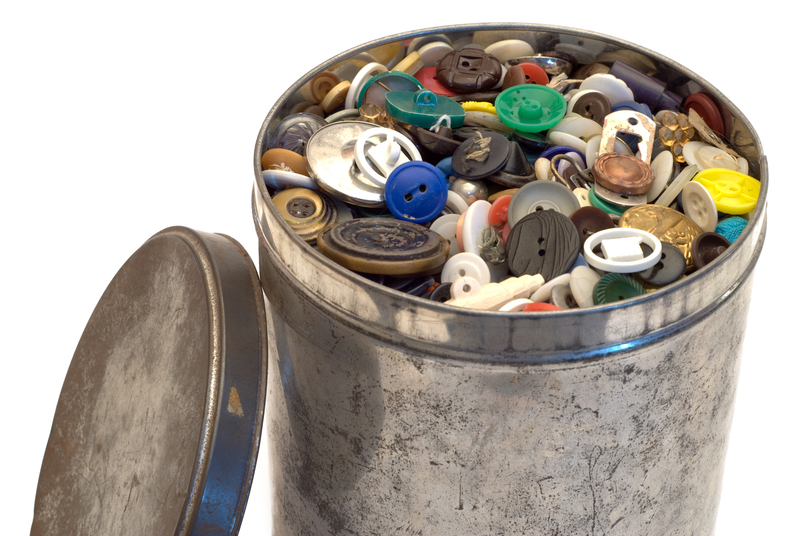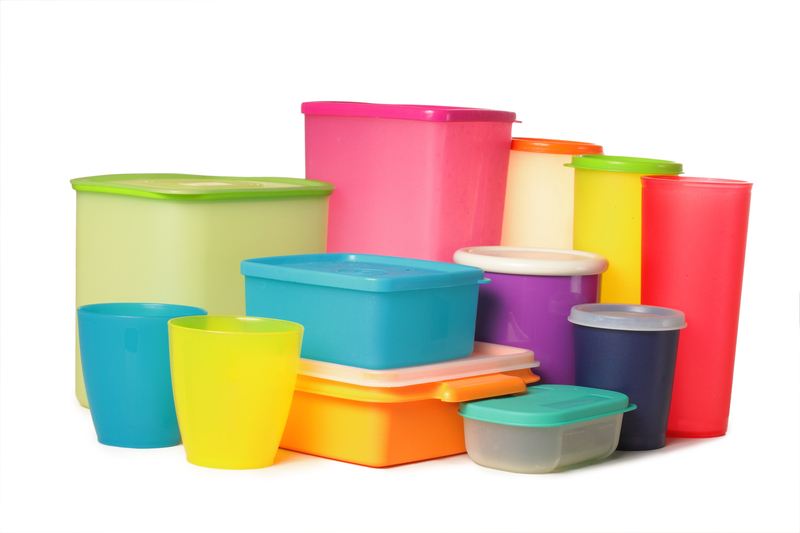Redefining School Recycling: A Guide for Change
In today's rapidly evolving world, recycling in schools requires more than just a bin in the corner. It involves a cultural and educational shift that empowers students, teachers, and the larger community to rethink waste management. Redefining school recycling means building a sustainable future by creating innovative, practical, and community-engaged recycling programs. This comprehensive guide explores the steps, strategies, and transformative benefits for schools aiming to lead the charge for greener and more responsible campuses.
Why Schools Should Rethink Recycling
Schools serve as fundamental pillars in shaping the habits and attitudes of future generations. By instilling a commitment to sustainable practices, educational institutions elevate recycling from a perfunctory task to a core value.
The Environmental Imperative
- Reducing landfill waste: Educational establishments generate a significant portion of municipal waste. Redirecting this through organized school recycling programs reduces strain on municipal systems.
- Conserving resources: Recycling conserves raw materials, lessening the need for new extraction and minimizing environmental impact.
- Decreasing carbon footprint: Enhanced recycling lowers greenhouse gas emissions related to decomposition and manufacturing.
Educational & Social Benefits
- Building environmental stewards: Students who understand sustainable practices become lifelong advocates for change.
- Fostering responsibility and teamwork: Class recycling projects encourage collaboration and a sense of responsibility.
- Engaging the community: Recycling initiatives often spill over into families and neighborhoods, amplifying the school's impact.

Current Challenges in School Recycling Programs
Despite widespread awareness, many recycling programs in schools still fall short due to:
- Lack of education - Teachers and students may not be clear on what can and cannot be recycled.
- Insufficient resources - Limited bins, signage, or regular collection services hinder successful recycling.
- Inadequate engagement - Without teacher and student buy-in, participation drops.
- Contamination of recyclables - Mixing non-recyclables undermines the entire process.
For school recycling initiatives to thrive, these obstacles must be addressed through thoughtful planning and inclusive change.
Strategies to Transform School Recycling
1. Conduct a Waste Audit
Before redefining how a school recycles, it's vital to understand what's being thrown away. A waste audit provides valuable insights by analyzing the types and quantities of waste produced. Key steps include:
- Gathering random waste samples from classrooms, cafeterias, and offices.
- Sorting waste into categories (paper, plastics, organics, etc.).
- Identifying contamination issues and commonly mis-recycled items.
- Reporting results to guide targeted recycling interventions.
2. Develop Clear Recycling Policies and Guidelines
Define which materials are accepted and where they should be placed. Post colorful, easy-to-read signage throughout the campus with:
- Visual guides for what belongs in each recycling stream.
- Do's and don'ts of recycling for both students and staff.
- Reminders of the environmental and social impact of proper recycling.
3. Student-Led Green Teams
Empower students to become recycling ambassadors. Form eco-committees or green teams responsible for promoting eco-conscious behavior by:
- Organizing regular recycling drives and competitions.
- Auditing recycling bins for contamination and giving feedback.
- Educating peers through classroom presentations and campaigns.
4. Incorporate Recycling Education into the Curriculum
Connect recycling practices to lessons in science, math, and social studies. Approach this by:
- Calculating waste reduction statistics in math classes.
- Exploring the science of decomposition in biology lessons.
- Researching global waste management practices in social studies.
This real-world connection maximizes engagement and clarifies why school recycling initiatives matter.
5. Engage Parents and the Wider Community
A successful recycling culture extends beyond school grounds. Use newsletters, social media, and events to:
- Share school recycling milestones and progress reports.
- Encourage at-home recycling and upcycling projects.
- Partner with local recycling centers for tours and workshops.
Creative Recycling Initiatives for Schools
The best school recycling programs go beyond ordinary bin collections. Here are innovative ideas to inspire transformation:
Upcycling Workshops
- Turn discarded materials into art projects or practical objects.
- Host competitions for creating recycled crafts or sculptures.
E-Waste Drives
- Collect old electronics from families for responsible recycling.
- Teach the importance of safe e-waste handling and its environmental impact.
Organic Waste Composting
- Set up a composting system for cafeteria food scraps and garden waste.
- Involve classes in monitoring, maintaining, and using finished compost in school gardens.
Zero-Waste Lunch Initiatives
- Encourage reusable containers and utensils.
- Promote "waste-free lunch" days with rewards for participants.
Step-by-Step: Launching a New School Recycling Program
Setting up or upgrading a school recycling system requires careful coordination. Follow these steps:
-
Form a Dedicated Team:
- Gather teachers, students, administrators, and custodial staff.
- Assign roles for communication, monitoring, and education.
-
Assess Needs and Opportunities:
- Conduct the waste audit to identify key areas for improvement.
- Survey staff and students about current recycling knowledge.
-
Design the Program:
- Select bins (different colors for each material) and strategic placement zones.
- Create instructional posters and handouts.
-
Educate and Train:
- Hold orientation assemblies and classroom trainings on recycling best practices.
- Feature recycling tips in morning announcements and newsletters.
-
Launch and Monitor:
- Set a launch date and celebrate with a school-wide event.
- Check bins and signage weekly, gathering feedback for improvements.
-
Celebrate Success:
- Share regular updates about waste diversion and recycling milestones.
- Reward classes or individuals who excel at recycling.
-
Evaluate and Scale Up:
- Analyze what's working and adjust strategies as needed.
- Expand into new areas such as composting or electronics recycling.
Tracking Progress and Measuring Impact
Robust school recycling initiatives rely on continuous evaluation. Develop simple, actionable metrics:
- Monthly waste volume: Track how much is collected in each recycling category.
- Contamination rates: Count how often non-recyclables are found in recycling bins.
- Participation: Survey students and staff about recycling habits.
- Community feedback: Gather input from families and partners to improve the program.
Celebrate achievements with visible displays, such as a wall chart of recycling successes or a digital dashboard on the school's website.
Overcoming Common Obstacles
Every new recycling program in schools will encounter hurdles. Typical issues and solutions include:
- Contamination: Use clear signage and student monitors to limit mistakes.
- Lack of engagement: Incentivize participation with awards or classroom competitions.
- Limited resources: Seek grants, local donations, or municipal partnerships for bins and collection services.
- Information gaps: Hold routine refreshers and keep information prominent across the campus.
Case Studies: Success Stories in School Recycling
1. Green Hill Elementary: Reducing Waste by 60%
By appointing student "Recycling Champions," Green Hill Elementary slashed landfill waste by 60% in one year. Their sustainable school recycling effort included weekly waste audits, peer education, and a robust composting system for lunch scraps.
2. Westfield High: Community Electronics Drive
Westfield High hosted quarterly e-waste collection events, diverting two tons of electronics from landfills annually. Students created awareness campaigns and partnered with city recycling centers to ensure responsible disposal.
3. Oakridge Middle School: Award-Winning Upcycling Program
Oakridge Middle's art teachers collaborated with the science department to turn recyclables into creative projects. The school won regional sustainability awards and inspired nearby schools to launch similar programs.

The Future of School Recycling: Beyond the Bin
As the world grapples with increasing waste, redefining the future of school recycling programs is more important than ever. Integrating sustainability into every aspect of school life--from curriculum to cafeteria--helps cultivate a new generation of environmental leaders. Emerging technologies, such as smart bins and digital tracking apps, offer exciting opportunities to streamline and amplify recycling impact.
Above all, success is measured not just by tons of paper or plastic saved from the landfill, but by how deeply the values of stewardship and resourcefulness are embedded in a school's culture.
Conclusion: Your Role in School Recycling Transformation
Whether you are an educator, student, parent, or administrator, you play a pivotal part in redefining school recycling. By embracing best practices, fostering creative solutions, and engaging the entire school community, you can spark a chain reaction of positive environmental impact. The time to act is now--let your school become a beacon of sustainability, setting an inspiring standard for others to follow.
Start your journey towards an innovative and impactful school recycling program today, and make a lasting difference for future generations.
- Encourage new ideas and share successful strategies with others.
- Stay informed about advances in recycling and sustainability.
- Measure progress and continually seek opportunities for improvement.
Together, we can turn every school into a model of environmental responsibility and a force for positive change.